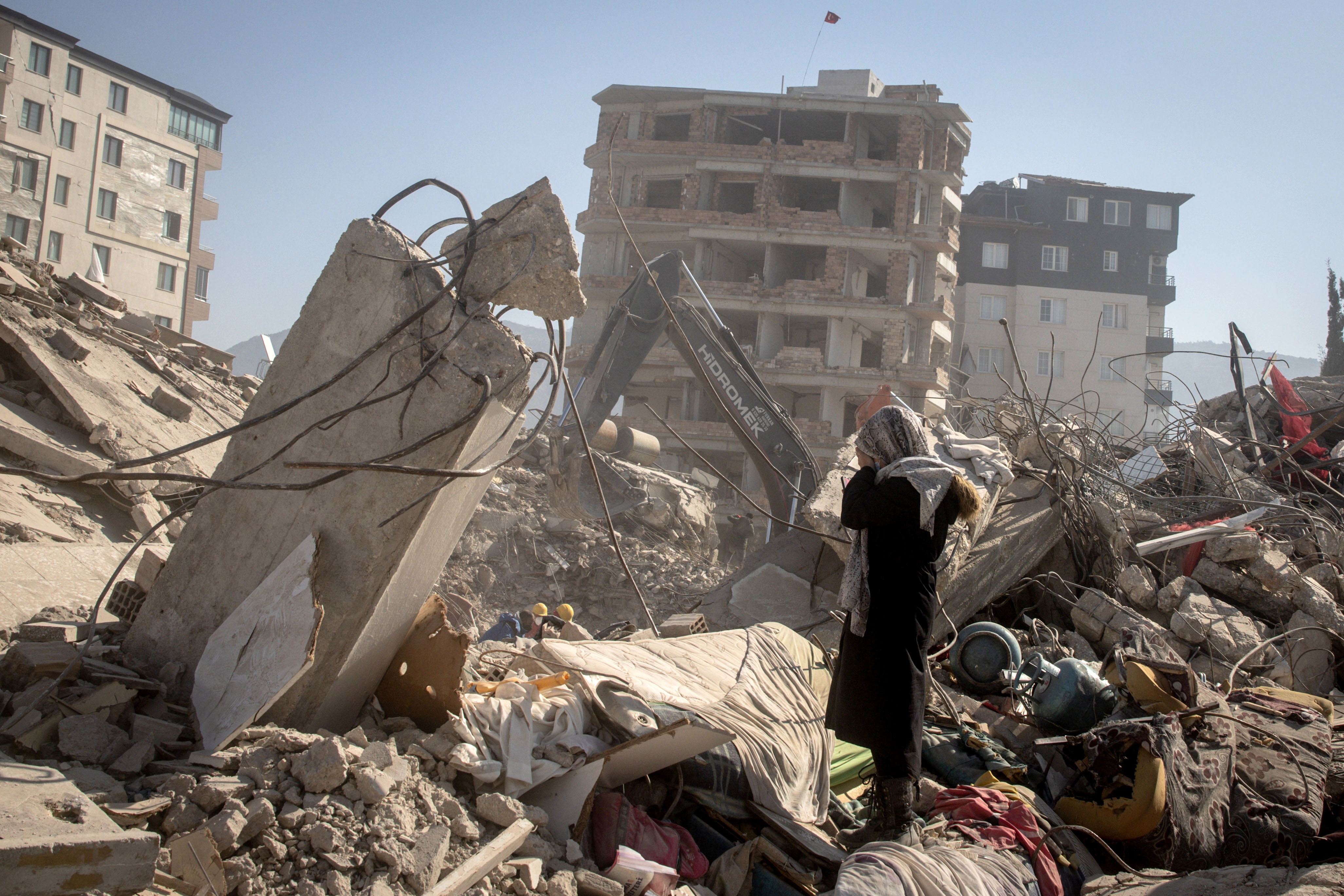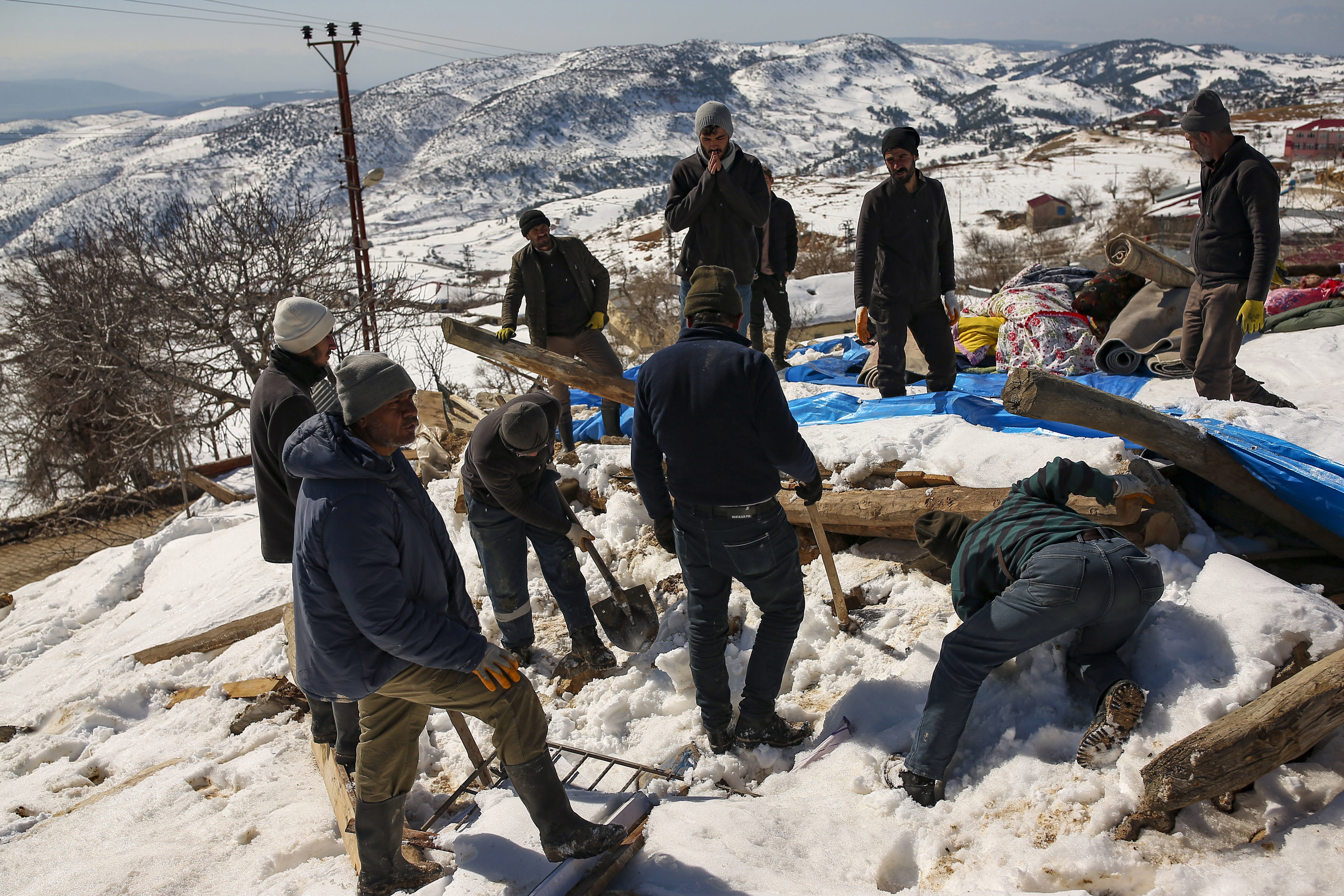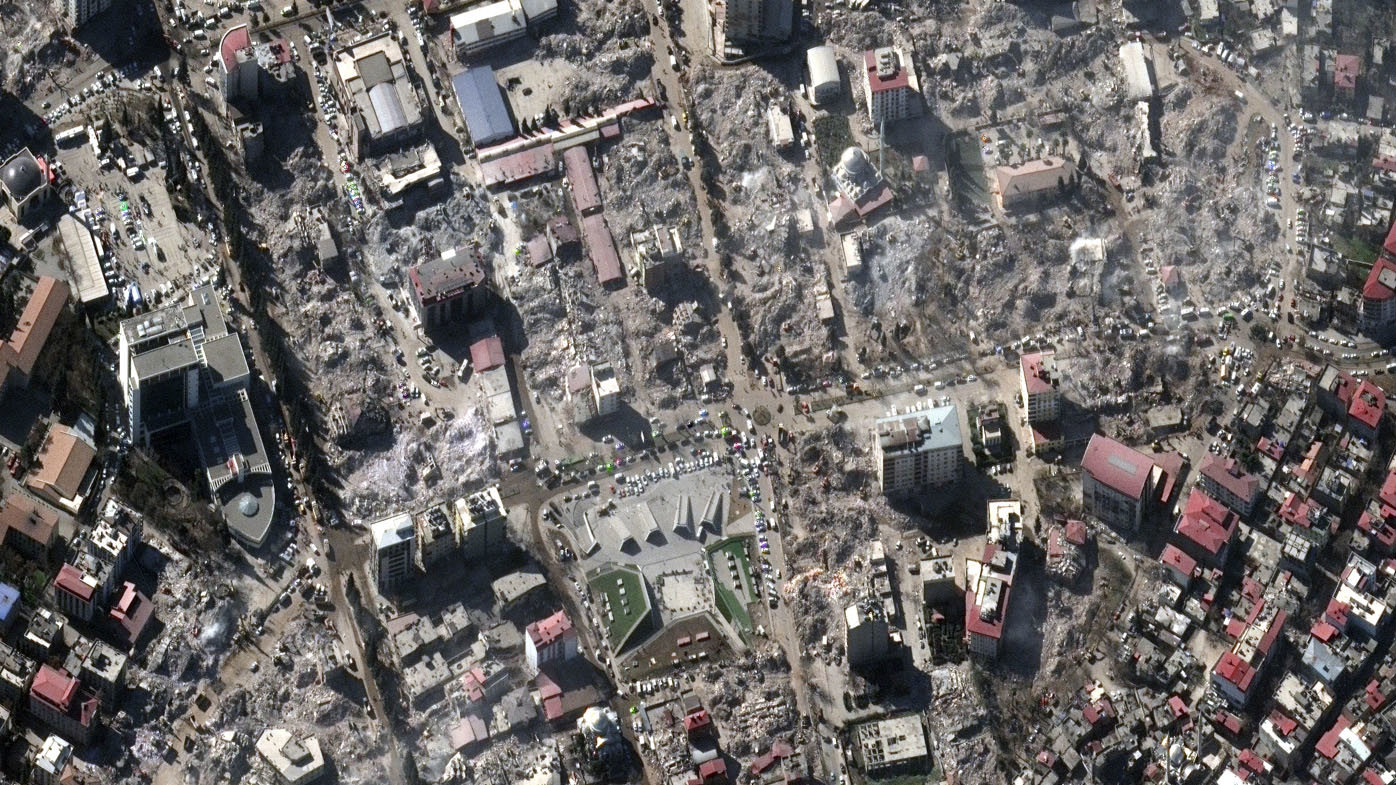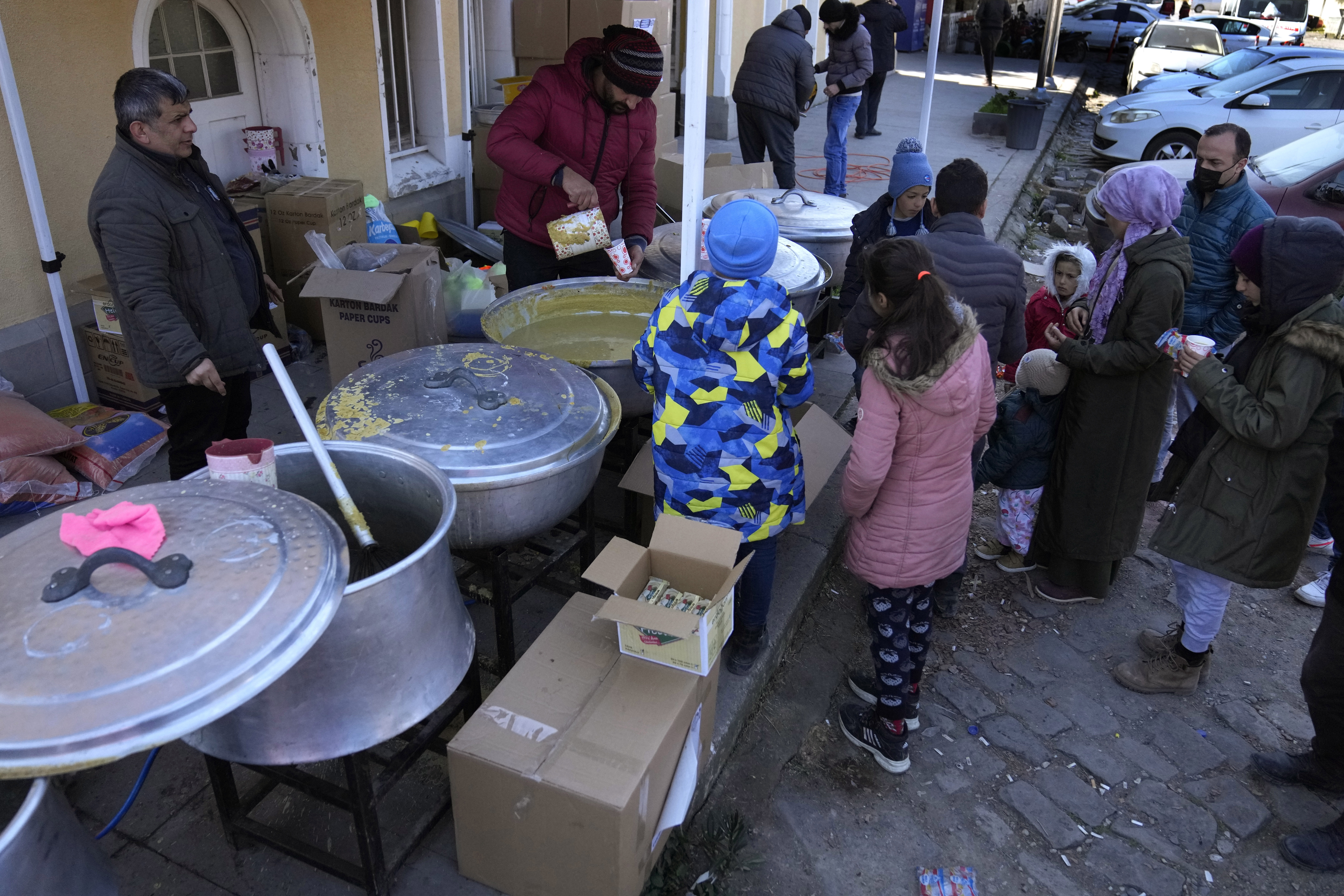A confused woman asked her rescuers "What day is it?" when pulled alive from the rubble of last week's earthquake after 228 hours.
The miracle rescue happened as another woman, aged 77, was also rescued from the debris, Turkey's state-run news agency Anadolu reported on Wednesday.
More than nine days after a powerful quake shook Turkey and Syria, rescuers were still pulling people from the rubble, defying predictions that the time for survival had passed.

READ MORE: Temperatures set to soar above 50 degrees in parts of WA
On Wednesday, Turkey's Ministry of National Defence released video showing rescuers extricating the 77-year-old woman from debris in the city of Adiyaman on Tuesday, some 212 hours after the earthquake struck.
Anadolu identified her as Fatma Gungor, and said her family hugged her after she was saved.
The other woman questioned "What day is it?" after surviving under the rubble with her two children for 228 hours, according to Turkey's state-run news agency Anadolu.
Rescue personnel Mehmet Eryilmaz talked about the moment they found the mother and said, "The mother was happy to see us. I held her hand at first. We talked, chatted, and calmed her down."
Eryilmaz also mentioned more of his dialogue with the mother and said she first asked for water, but he said they did not give anything without the intervention of the paramedics.
Eryilmaz told Anadolu that the first thing she asked was "What day is it?"
She also told Eryilmaz that her name was Ela and she had two children, a girl and a boy, who were pulled from the rubble with her.
Anadolu reported that she is a foreign national but did not mention what nationality.
READ MORE: Driver charged after teen killed in bus crash in Sydney's west

Also on Wednesday, another woman, identified as 45-year-old Melike İmamoğlu, was rescued after 222 hours in rubble in the city of Kahramanmaras, according to Turkey's state television TRT Haber.
Earlier, teams in southern Turkey said they were still hearing the voices of trapped survivors.
Live images broadcast on CNN affiliate CNN Turk on Tuesday showed rescuers working in two areas of the Kahramanmaras region, where they were trying to save three sisters - but it's unclear if the sisters survived.
In the same region, emergency workers saved a 35-year-old woman believed to have been buried for around 205 hours, according to state broadcaster TRT Haber.
Others were rescued too - two brothers, two men and a woman - all on Tuesday, eight days after the quake.
Sanjay Gupta, CNN's Chief Medical Correspondent, who's in Turkey's Hatay province, says it's unusual for people to survive more than 100 hours trapped in rubble - most are rescued within 24 hours.
READ MORE: Hollywood star Raquel Welch dies aged 82

However, he says freezing temperatures in the quake zone may be extending survival times for people trapped.
"The cold weather is a double-edged sword. On the one hand, it makes it very difficult, it is below freezing right now ... On the other hand, it may reduce the demands for water. Perhaps that is playing into this," he said.
"There is not a lot of data on how long people could survive in these situations but we are seeing those rescues 200 hours out."
Prime Minister Anthony Albanese has committed an additional $8 million to the earthquake relief efforts in Turkey and Syria.
The funds will go towards supporting ongoing search and rescue efforts, as well as protecting those made vulnerable by the disaster.
'Traumatised population'
Meanwhile in Syria, rescue operations are starting to shift to recovery efforts, and UN workers are racing to funnel aid to survivors in the country through two new border crossings approved by the government in Damascus.
Eleven trucks with UN aid crossed into north-west Syria via the Bab Al-Salam passage on Tuesday, UN aid chief Martin Griffiths tweeted, adding that 26 more trucks passed into the region via the Bab Al-Hawa crossing.
On both sides of the border, the World Health Organisation (WHO) has stressed the need to "focus on trauma rehabilitation" when treating populations affected by the disaster.

The WHO's Turkey Representative Batyr Berdyklychev highlighted the "growing problem" of a "traumatised population," stressing the need for psychological and mental health services in the affected regions.
"People only now start realising what happened to them after this shock period," Berdyklychev told a media briefing in the Turkish city of Adana on Tuesday.
The WHO is negotiating with Turkish authorities to make sure quake survivors can access mental health services, Berdyklychev added, noting that many people displaced by the quake to other areas of the country "will also need to be reached".
WHO Regional Director for Europe Hans Kluge said the "immediate priority" for the 22 emergency medical teams deployed by the WHO to Turkey was "to deal with the high number of trauma patients and catastrophic injuries".
Sign up here to receive our daily newsletters and breaking news alerts, sent straight to your inbox.
